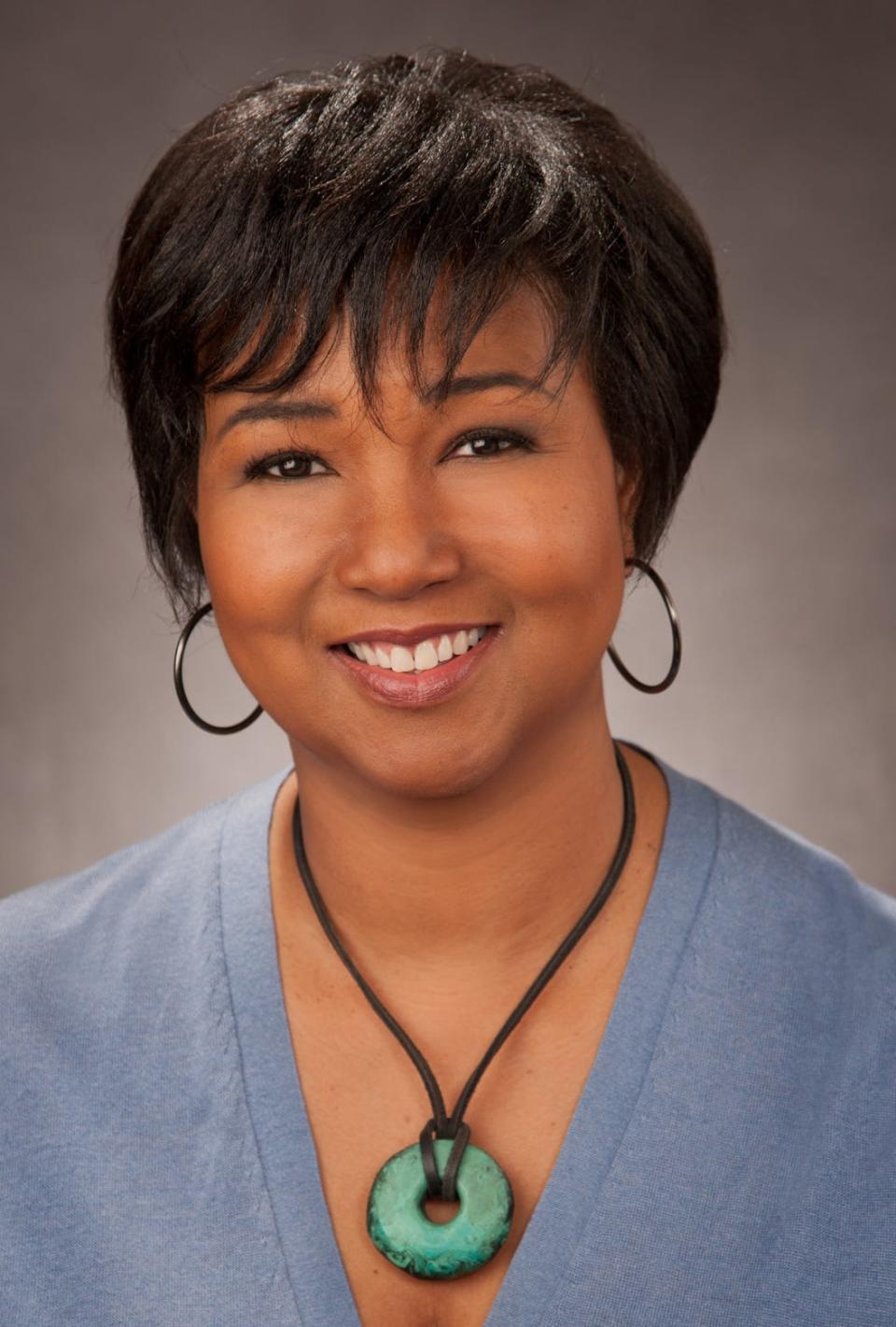Three takeaways from pioneering astronaut Mae Jemison's visit to Evansville
- Oops!Something went wrong.Please try again later.
EVANSVILLE − Mae Jemison is best known for her eight-day space flight 30 years ago, but "astronaut" is hardly the only hat she wears. The first Black woman admitted to NASA's astronaut training program also is an author, researcher, chemical engineer and advocate for science education.
Jemison's appearance at Thursday's Women's Equality Day event in Evansville was much anticipated. She was scheduled two years ago to commemorate 100 years of women having the right to vote, but COVID delays turned the event into a "Centennial Plus Two" celebration.
A sold-out audience of 500 at Old National Events Plaza heard her presentation, coordinated by the Equality Celebration committee in connection with nonprofits Stepping Up and YWCA Evansville.
Jemison, who spoke at Bosse High School earlier in the day, said her message is that everyone has a role in shaping the future, with science and related fields at the forefront.
Local news:One of the top names in local Democratic politics says he won't run for Evansville mayor
The future "is not just sitting out there waiting for us to find it," Jemison said. "We are actually building it today. So if there’s any way I can help people understand that they have a role in it, (I do it). They don’t have to ask permission to actively participate."
Jemison said the best future is one that's inclusive.
"There’s a strange thing happening these days, where we’re afraid that if someone else does well, that it means we won’t do well," Jemison said. "The universe, the world is much bigger than that. We have all these possibilities. And I want to make sure we’re including everyone in the possibilities of well-being now and into the future.”
Here are three takeaways from Jemison's visit to Evansville:
Her love of 'Star Trek'
As a young woman interested in science and space exploration, Jemison said she "always assumed I'd go into space," even though there were no women or Black people in the space program then, the original Star Trek series captivated her.
Nichelle Nichols, the ground-breaking Black actor who played Nyota Uhura on Star Trek and died recently, caught the young Jemison's eye. In later years, they became good friends.
"She was one of those people that, as I watched Star Trek, (going to space) was an affirmation for me, and there were all these possibilities in the world," said Jemison, who was raised on Chicago's south side. "The reason I talk about Star Trek and why it was so important is because the stories that people tell matter. The perspective of a storyteller is critical."
Jemison appeared in an episode of "Star Trek: The Next Generation."
Her love of STEM education
After leaving NASA in 1993, Jemison founded The Jemison Group, a technology research company and educational foundation to foster a love of science and technology in schools. It's as important now as ever, she said.
Getting more young people and especially young women involved in the science and related fields requires exposing them to the disciplines, setting expectations for them and enabling them to have hands-on experiences, she said.

It's important, Jemison said, to juxtapose a discussion of science with one of "humanity and who we are and what do we intend to do with our knowledge."
"Science and engineering technologies will release their full potential for a peaceful and beneficial impact on earth when it's widely disseminated, when it's generated by a diversity of people, and it's accessible to many people across generations."
Her next frontier
Jemison today lives in Houston. She said she "does a lot of things," but a main focus is an initiative called 100 Year Starship.
Jemison is principal in that project, which prevailed in a competitive grant process through the Defense Advanced Research Projects Agency. Its goal? Making human space travel possible to another star within 100 years.
Dropping another Star Trek reference, Jemison said the idea of 100 Year Starship is not having a vehicle like the Enterprise "just waiting to warp out. That's not it. It's really about making sure the capabilities exist. How do we foster a world that allows that kind of radical innovation, radical kinds of technological leaps to happen?"
Jemison said the name of the grant proposal was, "an inclusive, audacious journey transforms life here on earth and beyond."
"Every step of the way, this was about connecting space to life here on earth, and consciously doing it," Jemison said. "That first word, inclusive? I can guarantee you that if had not been the one leading this group, 'inclusive' would not have been the first word. It is inclusive across ethnicity, gender and geography, inclusive across disciplines. Because we can't solve a problem that big with just a single group of people."
This article originally appeared on Evansville Courier & Press: Space pioneer Mae Jemison spoke in Evansville about career, next goals

